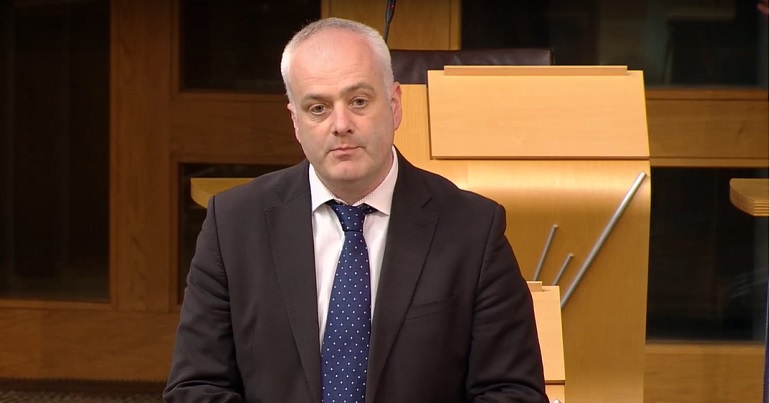Environmentalists who defend nuclear miss the point
George Monbiot, in his recent article ‘The Fukushima crisis should not spell the end of nuclear power’, argues that since – in climate change terms – coal is ultimately worse than nuclear, we should not abandon nuclear power.
However, surely the choice is not between nuclear and coal but between:
(i) continually refuelling and expanding an economy that is destroying people and planet; or
(ii) making a rapid transition to resilient low energy relocalised livelihoods that can tread more lightly.
Accepting the rules of the economic game (with all it’s political, social and environmental consequences) means we end up choosing the lesser of two evils. Powerful systems have always sought to maintain themselves by saying: if you don’t support us, the alternative will be far worse.
In contrast, the liberating aspects of this society – the same society that gave rise to the dominant economic model – have always emerged from the movements that have refused the choice of evils on offer, and insisted that we can be, we are, and we always have been a better world than that.
George Monbiot has been and continues to be a powerful force in one such current movement, and I am deeply grateful for his extraordinary week in week out spadework on all our behalfs. I just happen to think he’s missing the bigger picture on this one. But doubtless he would say the same of me, and who am I to judge?
It seems that how we frame that bigger picture is what always determines what happens next. This points to the need to always reflect on whether our ‘bigger picture’ is simply a reflection of the dominant ideology of entrenched power relations, or is a true reflection of reality.
The current impacts of climate change – whether in the rain forests here in Africa or in the Arctic – and the Fukushima disaster are both clear cases of reality breaking through.
My hunch is that people like George Monbiot and Mark Lynas – in effectively championing nuclear power – are trying to challenge what they see as a dominant ideology in the environmental movement.
However what needs to be challenged in this movement is not some apparently totemic opposition to nuclear power, but rather the opposite. What needs to be challenged is our refusal to really recognise the magnitude of change we each need to engage in – through rapid personal, community, cultural, legal and political change – to unhook ourselves from the convenience of high energy consumption.



I’ve written a thorough rebuttal of Monbiot’s pieces supporting nuclear power:
http://cooltheearth.wordpress.com/2011/03/29/why-george-monbiot-is-wrong-on-nuclear-power/
Hi Justin,
Cheers for the response. Thanks for the link I’ll take a look.
In hindsight my comment about George’s criteria needing to be met is slightly wrong and has perhaps confused what my main point was trying to be.
I should have instead said that I think nuclear, whilst NOT better than renewables, and NOT a longterm solution, is still a better option than coal right now, even if those criteria cannot be fully met.
To clarify, I’m not pro-nuclear as the longterm solution. I’m completely with you that we need to seriously reduce our energy consumption and use more renewable sources. I’m just saying, as I think George is, that in the short to mid term, faced with current energy demands, and accepting that behaviour change will not happen overnight, we need to be realistic and shouldn’t rule nuclear out, as using coal is a far far dirtier and damaging option.
Hope that atleast clarifies my point, even if you still disagree!
Thanks Dunc, Alasdair and Matt.
Matt, I am unclear what George really means. The start of his article strongly implies a pro-nuclear (in the context of climate change) perspective, but a friend of mine thinks he is actually not pro-nuclear at all. This friend writes:
“The conditions George has put on nuclear render it an unfeasible solution. Just for recap [George’s conditions being that]:
1. Its total emissions – from mine to dump – are taken into account, and demonstrate that it is a genuinely low-carbon option.
2. We know exactly how and where the waste is to be buried.
3. We know how much this will cost and who will pay.
4. There is a legal guarantee that no civil nuclear materials will be diverted for military purposes.
“I think it’s a clever strategy. We could also say that we’re not against torture if it can be proven not to harm the people who are tortured and the people who perpetrate the acts. I’m not against smoking as long as it can be proven it does not harm to the smokers, the people around them the country that implements a monoculture in support of it.
“According to David Fleming, #1 will prove it to be other than low carbon. #2 will keep the scientists busy for the next two centuries. #3 shows how much subsidies the whole thing requires (and who pays). #4 would be impossible and expose the belligerence of the state. [David Fleming’s analysis of nuclear is at: http://www.theleaneconomyconnection.net/nuclear/index.html%5D
“I think I’m with George on this one, as a way to expose the unfeasibility of this solution, and to show that any opposition to nuclear is not knee-jerk ideology (oxymoron?) but based on a rational and systemic analysis of all aspects of it.”
As far as I can see you and George both agree on the ‘bigger picture’ re: energy consumption, and you also both agree that renewable forms of energy are preferable over Nuclear. In fact, one of his paragraphs from the piece you refer to says just that (pasted below)
The only difference is that George realises that is a long term goal and is being far more realistic about our short and medium term options. If the assurances for Nuclear power that George stipulates can be promised, nuclear is still a better option than coal in the here and now. How does this reduce our chances of achieving the bigger picture in the future?
I’m confident we will change our attitudes and behaviour towards energy consumption. We’re going to be forced to eventually – even nuclear relies on rare fossil fuels that will run out. But that’s not going to happen overnight is it, and in the meantime we still need to meet our current demands.
It’s exactly the same as the voting situation in saying that, whilst PR is the end goal, it’s a long fight until that battle is won, and AV is still better than FPTP in the meantime.
Paragraph refered to:
“Of course it’s not a straight fight between coal and nuclear. There are plenty of other ways of producing electricity, and I continue to place appropriate renewables above nuclear power in my list of priorities. We must also make all possible efforts to reduce consumption. But we’ll still need to generate electricity, and not all renewable sources are appropriate everywhere. While producing solar power makes perfect sense in North Africa, in the UK, by comparison to both wind and nuclear, it’s a waste of money and resources. Abandoning nuclear power as an option narrows our choices just when we need to be thinking as broadly as possible.”
A fair point… However, the argument in favour of renewables isn’t solely based on a comparison with coal, as Monbiot’s argument for nuclear is. If you see nuclear as the end-game, fair enough, but if you’re only backing nuclear as a temporary stopgap on the way to a fully renewable energy economy (as Monbiot does) then the lack of displacement is a major problem.
Agreed. The other problem is that it’s not actually a choice between coal OR nuclear, it’s a choice between fundamental change OR coal AND nuclear. You can only claim that nuclear displaces fossil fuels if you actually stop extracting and using them, and as Monbiot himself has consistently pointed out, that simply isn’t happening.
@Dunc
I agree it shouldn’t be a choice between coal or nuclear, but you could equally say renewables only displace fossil fuels if you actually stop extracting and using them, and that isn’t happening. I assume you wouldn’t consider that to be an argument against investment in renewables though? So why does it work for nuclear power?